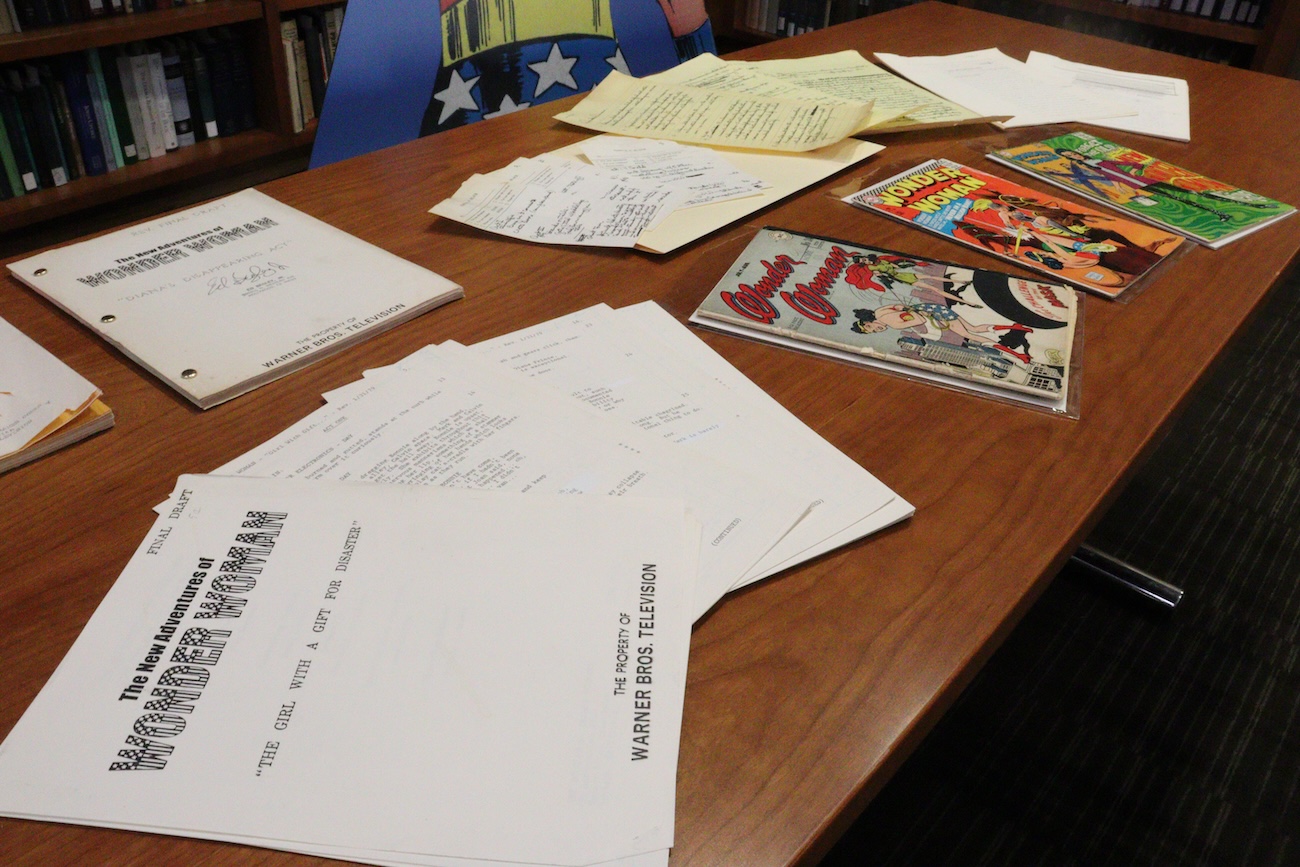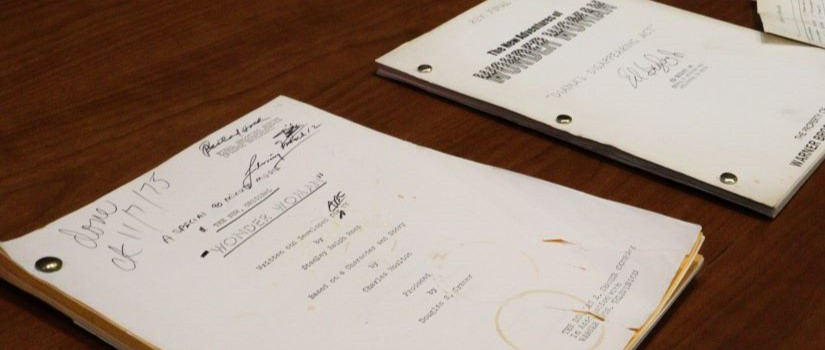USC students in classes ranging from cultural studies to TV production to Women’s history will now have a chance to get hands on experience exploring materials that speak to the history of a beloved classic that sits at the intersection of these topics.
That’s because the Irvin Department of Rare Books and Special Collections at University Libraries has recently acquired the original scripts used in the production of the hit 1970s television series “Wonder Woman,” starring Lynda Carter in the titular role.
The new acquisition includes the original scripts used during the filming of the show, as well as handwritten notes from directors and producers and “treatments,” notes that plan out the plot, from the show. Covered in inscriptions and coffee stains, the scripts were, of course, never meant to be seen outside of production. They are authentically annotated, a genuine display of the creative process and labor that went into the production of the show.
While the scripts may not seem like typical special collections materials in an academic library, their acquisition builds upon and enriches USC’s collection of Comic Books and Film and Media Studies materials, says Michael Weisenburg, Director of the Irvin Department of Rare Books and Special Collections.
“The scripts are a way for us to expand how we teach Film and Media Studies to students,” Weisenburg says. “They give students an opportunity to learn about twentieth century methods of film and television production. Students get a behind-the-scenes peak into what would have gone into making a television show of this caliber. They also serve as a model for comparison to other popular shows of the time, and how this show navigated the popular culture at the time of its production.”

Rifling through the scripts, with all their marks and annotations, creates a sense of being on the set, reading through a script a producer might have just used as a quick coaster while they ran to handle a crisis elsewhere. The handwritten notes give personal insight into the craftsmanship involved in bringing arguably one of the most well-known female superheroes onto the small screen. The scripts themselves will bring the making of this revolutionary show right into students’ hands.
“I’m pleased we were able to acquire these scripts from the television adaptation of Wonder Woman,” says David Banush, Dean of University Libraries. “We have several faculty members who regularly teach using Wonder Woman and other comics from our Gary Lee Watson Comics Collection; this acquisition will help demonstrate the ways in which figures from comics, once considered trivial, continue to evolve with changing media, values, and notions of what constitutes culture.”
It may come as a surprise to some, but the department that makes the most use of USC’s comic collection is Women and Gender Studies. As a key figure in the DC comic book universe, Wonder Woman is arguably the quintessential female superhero. Her presence is important to generations of young people, as they can see themselves in her. Wonder Woman was created in 1941 during WWII as a form of propaganda, but during the second wave feminist movement of the 1970’s she became a feminist icon and influencer. This influence was evident in women’s magazines, particularly Ms. Magazine, and later the 70s television show. Now, Weisenburg says, having the scripts from that show “allows us to make that an even richer learning experience” for students who explore women in comics.
Dr. Dawn Campbell, Senior Instructor and Undergraduate Director in the Department of Women’s and Gender Studies, includes a unit on Comics and Wonder Woman in her introductory classes. “Several semesters ago, I partnered with the Library’s Rare Books Department to line up a lecture for my students each semester,” Campbell says. “Now that Rare Books has acquired scripts from the Wonder Woman 1970’s television series, this will be another opportunity for students to engage with the historical and socio-cultural relevance. I’ve been wanting to include clips from the series in my classes to support the Wonder Woman unit, and now I will have the opportunity!”
The research and teaching potential afforded by the scripts is significant, says Weisenburg. Wonder Woman still appeals to younger generations of learners and comic books fans. While the scripts bring the more surface level appeal of studying Wonder Woman as a character, they also provide a historical context to the labor that went into making Wonder Woman as we know her to be today.
“I remember watching Lynda Carter play Wonder Woman. I found her electrifying and magnificent. Developing and teaching a unit on Wonder Woman has been a major highlight of my career, and I am excited for the continued expansion of the Library’s Wonder Woman collection,” Campbell says.
